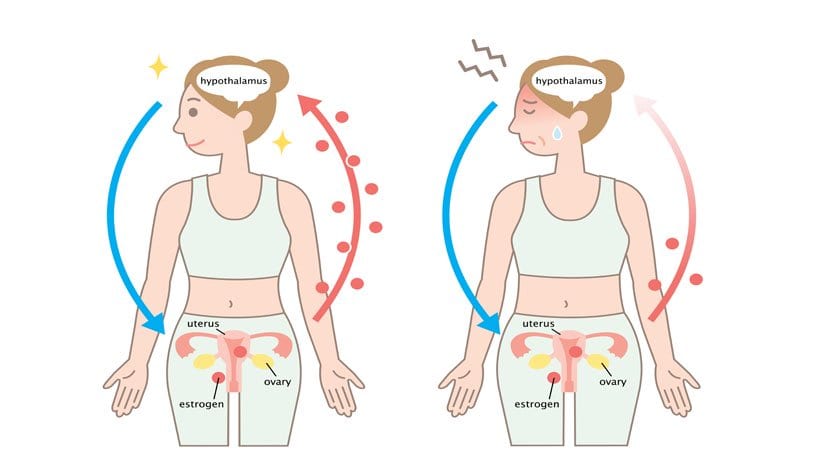The physical signs of menopause are easy to detect. Hot flashes, joint pain, headaches, and potential weight gain are unique changes to a woman’s body that she might notice when she stops menstruating.
However, the emotional effects of menopause are more difficult to measure. Changes in a woman’s body and in a woman’s life may affect the way she processes events and feels her emotions. According to the website Everyday Health, whose articles are reviewed by medical professionals, research says women between the ages of 45 and 65 –– the years during menopause –– have the “lowest emotional well-being of any age group or gender in America.”
Women report episodes of mood swings, depression, and anxiety during menopause. Here are some potential causes of these changes –– and what you can do to take back control of your emotions.
Lifestyle or hormones?
The National Institute on Aging (NIA) says menopause begins 12 months after a woman’s last period and lasts anywhere from seven to 14 years. During this time, the ovaries vary their production of two key hormones, progesterone and estrogen.
According to the health resource website Healthline, estrogen is responsible for the production of serotonin, which helps regulate your moods (especially your positive emotions). With lower estrogen production comes decreased serotonin.
Lower estrogen may not be the only biological factor, though. Hot flashes can disrupt your sleep, making you irritable and less rested. Moreover, decreased libido might lead to frustration and stress with your partner.
In addition to these potential causes, the NIA says some external factors may cause emotional disruption. Menopause begins around the age of 50, and at this point, many women have additional stressors with which they contend. Some of these including watching their children leave home, caring for aging parents, developing their retirement savings plans, and dealing with the stress of promotions in their career.
What you can do
Women might be able to manage mild symptoms by developing healthy habits. For women who find themselves becoming upset over situations that didn’t used to bother them, learning relaxation techniques might help, according to Everyday Health.
If you’re not already practicing these habits, the health resource site Medical News Today says the following may help with mood swings and depressive tendencies:
- A balanced diet with nutrients like omega-3 fatty acids and vitamin D. Implementing plant estrogens like soy milk or edamame may also help with the lower estrogen production.
- Exercising 150 minutes a week, which produces mood-boosting endorphins and can help with esteem-crushing weight gain.
- Mindfulness and meditation, whether through yoga, tai chi, or a few quiet moments by yourself.
The Ohio-based Cleveland Clinic says hormone therapy with a synthetic estrogen may help some women, but the clinic warns that hormone therapy alone is not effective in treating severe depression. Some women may find coping with these emotional changes more manageable with antidepressants or therapy.
Every woman’s needs are different, so talk to your doctor to determine the best plan for you.
Sources:
https://www.everydayhealth.com/hs/guide-to-managing-menopause/emotional-symptoms/
https://www.nia.nih.gov/health/what-menopause
https://www.womenworking.com/everything-you-need-to-know-about-a-womans-body-during-menopause/
https://www.healthline.com/health/menopause/menopause-anger#chemicalconnection
https://www.cdc.gov/physicalactivity/basics/index.htm?CDC_AA_refVal=https%3A%2F%2Fwww.cdc.gov%2Fphysicalactivity%2Fbasics%2Fadults%2Findex.htm
https://my.clevelandclinic.org/health/diseases/15231-menopause-emotional-aspects-including-depression/management-and-treatment
https://www.medicalnewstoday.com/articles/317566.php
The post What Happens to Your Emotions During Menopause: Mood Swings, Imbalances, and What You Can Do About Them appeared first on WomenWorking.
This content was originally published here.







